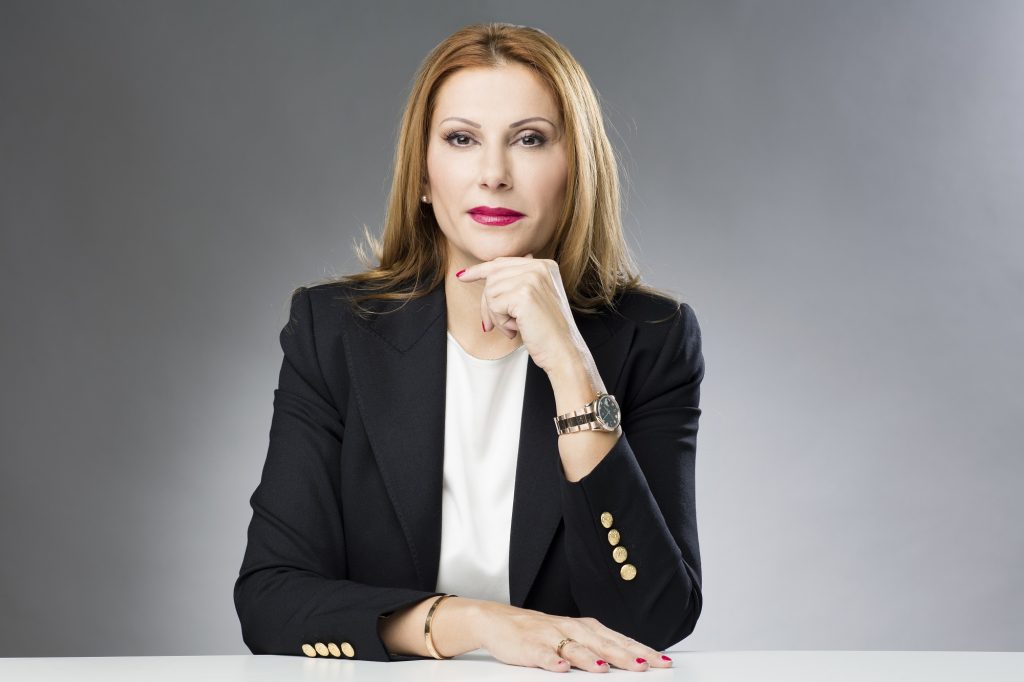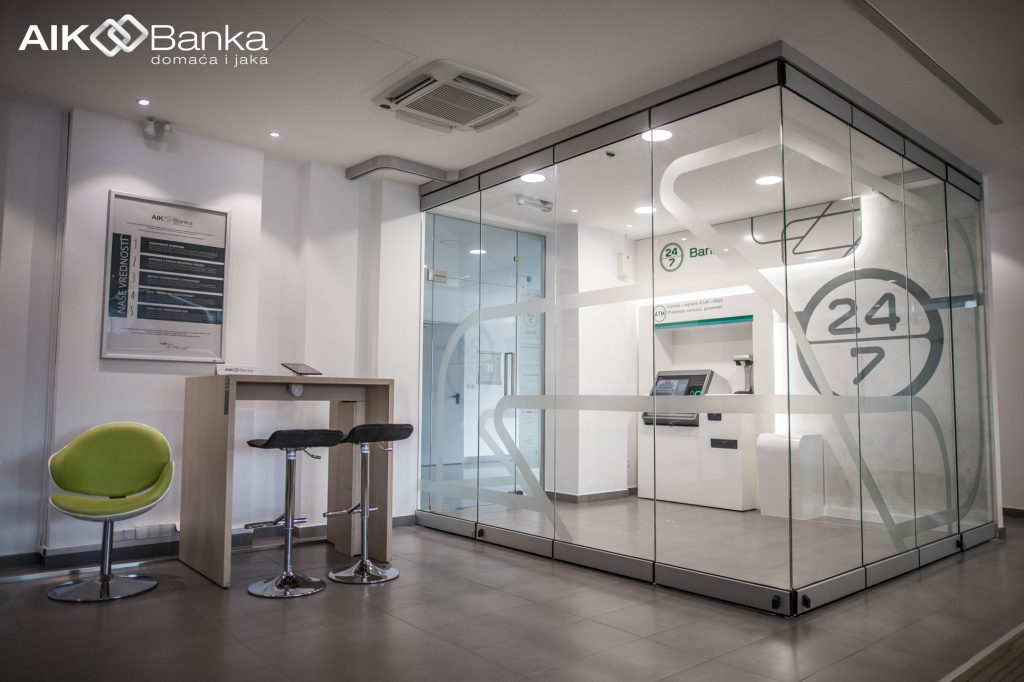Taking into account the strong capital and liquidity position of the entire banking sector, banks will definitely continue to be the backbone of the economy and a partner of the state in maintaining the achieved stability and further overcoming potential challenges.
Following the 2019 acquisition, AIK became the owner of Gorenjska Banka dd from Kranj (Slovenia) and in that way, expanded its operations to the EU market. In an interview with Jelena Galić, CEO of AIK Banka a.d. we talked about that topic and the overall situation in the banking sector. “Looking at the bigger picture makes it possible to turn challenges into business opportunities, and more importantly, no individual can achieve as good results as the whole team can,” says Ms Galić.

What is the current situation in the Serbian banking system like?
The domestic banking sector has once again validated its strength and stability, regardless of the uncertainty caused by the global pandemic, thanks to maintaining the vitality of the economy’s real sector through the provision of direct assistance to companies, as well as stimulating measures devised by the NBS. The banking sector’s capitalization is at a high level, with a capital adequacy ratio of 22.2%, which is well above the regulatory minimum.
“Our bank’s operations and achieved results in Slovenia show that a domestic bank has the strength, competencies and know-how”
According to the NBS, total bank placements last year increased by 10.7%, while the year-on-year growth of lending activity in June 2021 was higher by 6.3% compared to the same period last year, which demonstrates that lending activity has accelerated. Taking into account the strong capital and liquidity position of the entire banking sector, it is certain that banks will continue to be the mainstay of the economy and a partner of the state in maintaining the achieved stability and further overcoming potential challenges.
AIK became the owner of Gorenjska Banka dd from Kranj (Slovenia) and thus has expanded its activities to the EU market. Are there any differences in the bank’s operations in Serbia and Slovenia, i.e. in the European Union?
With the acquisition of Gorenjska Banka in 2019, we have once again demonstrated the financial strength, integrity and credibility that a banking institution needs to possess to operate on the EU market. In that sense, the differences are almost non-existent, considering that the regulations related to banking operations in Serbia and the European Union are practically identical. Our bank’s operations and achieved results in Slovenia show that a domestic bank has the strength, competencies and know-how to be an equal participant in the European banking market.
For some time now, interest rates on time deposits in banks have been extremely low, almost symbolic. Is this a sign that there is a surplus of capital, low investor interest or is there another reason?
Interest rates, viewed as the price of money, have been declining for years and are at an all-time low. Since the onset of the global financial crisis, key central banks have been pursuing extremely expansive monetary policies. The ECB did not stop implementing an expansionary monetary policy, while over a certain period, before the outbreak of the pandemic, the Fed started “tightening” the monetary policy, which the pandemic now leading to the “easing” of this policy again.
This long-term monetary policy implemented by key central banks was aimed at stimulating a new investment cycle, thus making the funds for the new investment cycle available under the most favourable conditions, at the time when the system was experiencing high liquidity which was the result of an expansionary monetary policy, and for interest rates, as an expression “money prices”, to be low. Most key interest rates such as Euribor, Libor and the ECB’s reference interest rate are negative. The yield on German ten-year bonds is also negative. Also, some European banks charge negative interest rates on higher deposits due to “monetary abundance”, on the one hand, and the costs of manipulating money, which are not negligible, on the other hand.
Given that Serbia is has a small and open economy, connected to the global (primarily European) financial market, it was natural for these trends to be reflected in Serbia as well. If we add to this the fact that banks are extremely liquid, then low interest rates are not a surprise. Also, we should not ignore the fact that low deposit interest rates also affect low lending interest rates, which is important for investment activity and economic growth. International financial institutions project that interest rates will be negative for some time to come, which indicates that there is room for further investment growth.

Last year, you gave a lecture to students of Master’s studies on the topic of exchange rate policy in Serbia. How much does a stable exchange rate help the domestic economy? Does such an exchange rate, i.e. the strong Dinar, favour the import lobby at the expense of domestic producers?
The issue of the exchange rate is one of the most controversial issues in the international economy, both theoretically and practically. In other words, there is still no complete agreement in theory or practice on this issue. Numerous issues, such as inflation, the current account deficit (surplus), the inflow/outflow of international capital, as well as the interests of many economic entities, overlap through the exchange rate. Interests are quite divergent because importers prefer a “strong” exchange rate, and exporters a “weaker” one. However, what is certain is that a stable exchange rate suits everyone, and I can say that the NBS has achieved this goal. The most important thing is that a stable exchange rate creates the certainty that both citizens and the economy need in order to realistically plan and improve their lives and their business.
Earlier, the exchange rate was predominantly considered to be an instrument for boosting international competition, and countries with a balance of payments deficit were pulling for devaluation. However, such views are no longer considered valid and a large number of studies have shown that exchange rate policy cannot be used to boost domestic competitiveness. Namely, after the initial increase in exports after the devaluation, comes the second stage in which the prices of all imported products, that are incorporated into a large number of other products, increase. This leads to rising inflation, which, in turn, leads to a weakening of the national currency, which nullifies the effect of devaluation and creates a vicious circle: inflation-exchange rate- inflation, and all together disrupt the macroeconomic environment, business predictability, i.e. attractiveness of the country for foreign direct investments, etc.
“I consider the NBS exchange rate policy, which ensures stability and predictability of operations, to be good”
Exporters boost their competitiveness by improving product quality, reducing prices, improving after-sales services, etc. On the other hand, the real exchange rate affects everyone, both importers and exporters and domestic producers. Therefore, I consider the NBS exchange rate policy, which ensures stability and predictability of operations, to be good.
Is it difficult for a woman in Serbia to succeed in the banking sector and when she does succeed, is it difficult for her to stay in that high position?
Commitment and continuous investment in yourself are important if you want to succeed in any business, including the banking sector. Being a woman makes me proud to show how a person, not a gender, makes a difference. Competence, knowledge, experience and approach, which should be comprehensive, are the key determinants of success, regardless of the position you are on or the industry in which you work. Looking at the bigger picture makes it possible to turn challenges into business opportunities, and more importantly, no individual can achieve as good results as the whole team can.